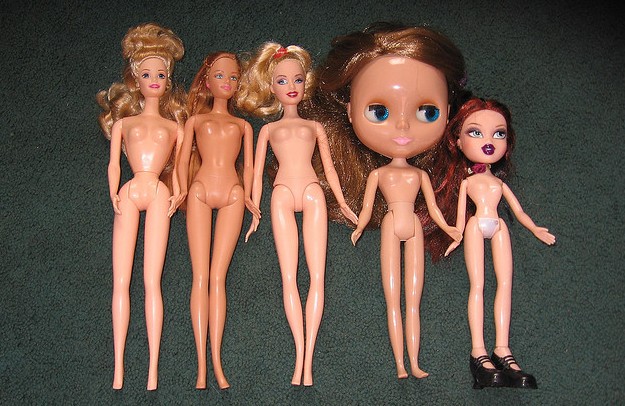Columnist Jasmin Ashton on hiding, accentuating or down-right accepting your best/worst features.
It may just be the lens through which I view it, but Melbourne is largely a youth-oriented city. Young adults seem to be the majority of people out in the city at almost any point during the working day, with the ‘grown-ups’ squirreled away in their offices and the high school kids locked away in their classrooms while we have unopposed free reign of the city streets.
As part of this youth culture, it seems as if every second person is in some way on display and commanding attention through their appearance—defining themselves as part of a subculture or aesthetic, or simply expressing their individuality. Envy-inducing fairy floss hair, stunning haircuts that seem to defy both logic and gravity, and fashion so daring it has people down Collins Street stopping mid-sentence on their iPhones to gape.
It’s safe to say the act of such self-presentations are largely about attention and identity, defining who you are and setting yourself apart from the masses.
I used to have a rather morbid hobby as a teenager, most likely reflective of my small-town paranoia about ‘stranger danger’. It involved mentally constructing a short description of strangers in the street and essentially filling in the blanks of a Crime Stopper ad. How tall they are, what they look like, defining characteristics, hair colour, etc. (Yes, I’m fully aware I used to be excessively weird. I clearly missed my calling as a Private Investigator.)
The odd part was that when I tried to turn this technique on myself I struggled come up with my ‘defining characteristics’. After much self-reflection, I rested with ‘fat, tall, and brunette’. These descriptions have applied to me my entire life. Other people had dramatic hair, tattoos, piercings, or generally ‘cool’ quirks or personality trait. But my number one visual identifier was my body, which took me a while to accept was okay.
Coming to terms with these physical traits is like when you lose your mum in a shopping centre and have to start asking around for her. You’re forced to think from an outsider’s perspective: you don’t know what she bloody looks like, she’s just ‘mum’. She looks like home and familiarity. But right now she needs to be described as tall, wearing a red dress with her brown hair in a ponytail if you’re ever going to see her again. (Or you just do my trick and walk around saying, “She’s almost identical to me, but shorter and twenty years older.”)
Everyone has some identifier, even if it’s not something that you don’t necessarily wish to have pointed out on a daily basis. Sometimes you struggle to accept this part of you. Dramatic eyebrows, a large nose, bald patch, disability, noticeable stature—there’s something for everyone, and majority of the time it just cannot be helped or altered without great cost or pain. Here’s a fun job for you when you get bored in a lecture: try constructing a photo-fit of yourself online. It’s eye opening and will definitely deter you from committing any serious crimes (they are not flattering), and show you a different version of your face, one constructed from facts and interpretations. It doesn’t have the story that goes with the scar on your chin, or the reason why one eye is smaller than the other because you were head-butted in the face in Year 10. All those little cool stories and features that people assessing you on the street, (or police arresting you) will never get to learn about.
When I was in high school I had a bit of a crush on Lea Michele, particularly after reading a quote from her saying, “I’ve always been proud of … my Jewish nose … that’s not going to change.” I’ve never been self-conscious about my nose but I figured that sort of self-confidence could be translated to any body part or feature. Regardless of what the world and media says, you can just tell them to stick it and be proud. And when she had a nose job a few years ago, that was her choosing to alter her defining characteristics, albeit a bit of a kick in the face for teenage Jasmin.
Everyone is visible in different ways, and some people make choices to control their most visible features—whether it be by hiding or accentuating them. It means we have the ability to define ourselves rather than be subject to what we cannot control. It’s all about power over yourself—it’s the one thing you should have above all else.
By Jasmin Ashton


